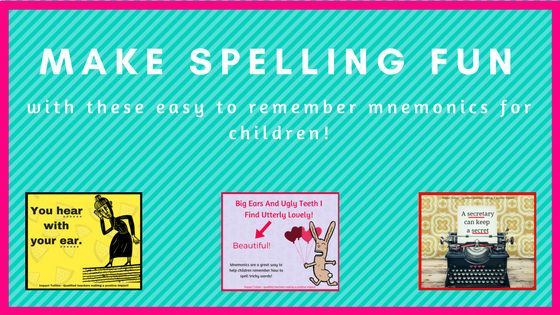Help your child love reading.
Tips and advice on how to help your child love reading - it is possible to get a reluctant reader to become a child who reads for pleasure!
How to help your child love reading – or what to do with a reluctant reader!
Tips and advice on how to help your child love reading – it is possible to get a reluctant reader to become a child who reads for pleasure! As a tutor and a teacher, I’ve had many parents complain that, despite their best efforts, their child resists reading and rarely chooses to read for pleasure. This can often cause a great deal of conflict for both parent and child. If this sounds familiar, the good news is that there are steps you can take to help your child love reading!
Encourage positive feelings towards reading for pleasure.
Reluctance to read can start early on or develop as a child grows older. Parents want their child to love reading. When a child is reluctant to read parents naturally become anxious. They worry that their child will struggle at school or that it may be a sign of dyslexia. In this situation it is important to stay positive and don’t try to force your child to read. Instead, take the pressure off the child, even if this means reading to them for a while. Reduce the amount they are expected to read or take turns reading with them.
Make reading time special.
Make reading a special time in which your child’s participation is valued and praised. It sounds obvious but make sure there are no distractions – no TV or electronic gadgets, you and your child need to be focused entirely on the book. Make sure that your child sees you reading too – you are an important role model for them! You want them to associate positive feelings with reading so make a drink and get comfy on the sofa. Sitting at a table may make them think of school or homework rather than a relaxing and enjoyable pastime.
How to talk about books with your child.
Don’t make older children read out loud to you if they don’t want to as some children are very uncomfortable about reading aloud. Instead, read ahead in their book and ask them questions to check that they have understood what they have read.
Read with your child and involve them by talking about the story. Ask questions about what they think might happen next, which bit did they like best, who was their favourite character and so on. Offer your opinions too so that it feels like a conversation rather than a quiz! Read books at their level and ones that they wouldn’t be able to read independently. When reading books at their level, make sure they can see the words and point to the words as you read so that they can follow along. Audiobooks are also a great way of maintaining a love of story, even if they won’t read. Most libraries have audiobooks available and there are many apps that allow you to download them on to your phone. They are perfect for car journeys or making bedroom tidying less painful!
Help with choosing a book your child will love reading.
Let them help choose what to read. Reading non fiction books and comics or magazines is absolutely fine and many children naturally prefer these. Graphic Novels are often great for older children as they can follow a story but they are more visually appealing than pages of unbroken texts. They are great for less confident readers as the text is reduced and they can use pictures as clues. I’ve had great success getting very reluctant Year 5 readers to enjoy reading with the Alex Rider series by Anthony Horowitz which are all available as graphic novels. Some children get “stuck” on a particular book or author, this isn’t necessarily an issue unless they persistently refuse to read anything else. Think about films, TV programmes, and computer games that your child enjoys. Books with similar themes may appeal to them, or even books based on them. Taking your child into a bookshop can be daunting if they are a reluctant reader. You can spend a small fortune only for them to give up after the first chapter of the books they chose, leaving you no further forward and definitely not feeling positive about their reading! I find http://www.lovereading4kids.co.uk/ great for helping to discover new books. You can search by age, genre, similarity to other authors and so on. You can also download the first chapter for free so you can try before you buy!
Speak to your child’s teacher.
Do talk with your child’s teacher and find out if their behaviour if the same at school – it may not be. Children often do what is expected of them at school but let their true feelings show at home, where they feel safe. Your child’s teacher may be unaware that there is an issue but can monitor their reading more closely at school if you let them know there is an issue at home. They may be able to give you some ideas for book choices based on what other children in the class are enjoying.
Is this a sign of something more serious?
Many children go through phases of being reluctant readers and 21st Century children have more distractions than their parents’ generation did. A reluctant reader may just need to find a book that grabs their imagination or to make specific time for reading. Many parents worry that a reluctance to read could be a sign of dyslexia. Whilst this is sometimes the case, it is certainly not the only reason for a reluctance to read. Meares-Irlen Syndrome (also known as Scotopic Sensitivity) is a quite common perception disorder affecting reading. It can present similar difficulties to dyslexia – it certainly tends to produce reluctant readers as reading can be very uncomfortable for people with this disorder. I have worked with many reluctant readers and assessed them for Visual Stress. A coloured overlay or tinted glasses have really helped if they’ve shown symptoms.
What if this doesn’t help?
Remember that a child won’t change their attitude overnight and it may take a while to see positive changes. It may be sensible to seek your child’s teacher’s opinion on whether there could be underlying issues affecting your child’s reading if reading is still causing problems. Some children develop a love of reading later than others and not every child will be a bookworm. If your child is achieving expected levels for their age however it may be that you just need to persevere and keep them reading whatever they will.
Further reading:
audiobooks for children:
http://www.independent.co.uk/arts-entertainment/books/features/the-10-best-childrens-audiobooks-8848918.html
Graphic Novels for children:
https://www.parentmap.com/article/best-children-books-graphic-novels
More information on Visual Stress/Meares-Irlen:
https://www.impacttuitionurmston.co.uk/dyslexia-visual-stress-screening/





